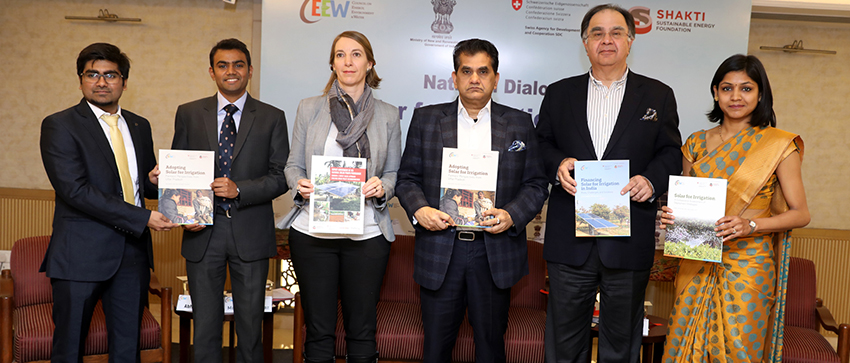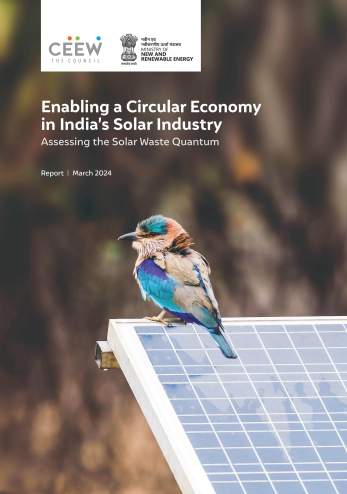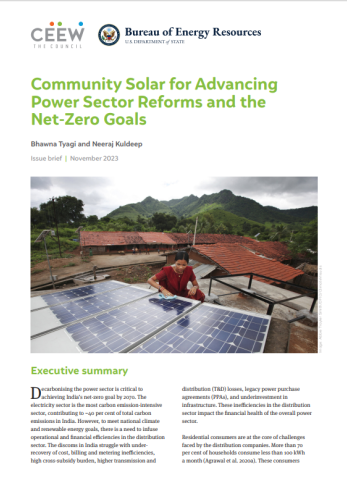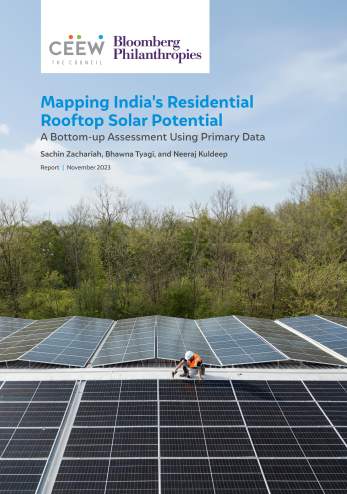Policy Brief
Financing Solar for Irrigation in India
Risks, Challenges, and Solutions
Shalu Agrawal, Abhishek Jain
January 2018 | Energy Transitions, Sustainable Finance
Suggested Citation: Agrawal, Shalu and Abhishek Jain. 2018. Financing Solar for Irrigation in India: Risks, Challenges, and Solutions. New Delhi: Council on Energy, Environment and Water.
Overview
Access to reliable and affordable irrigation is one of the critical enablers to increase agricultural productivity and farmers’ incomes. Over the past five years, over 100,000 solar-powered irrigation systems (SPIS) have been installed in India. This brief examines the risks and challenges constraining the financing of solar pumps in India, ease of financing for different delivery models for solar pumps, factors constraining the flow of finance, and potential measures to mitigate the risks and challenges affecting the financing of solar pumps.
The report was released by Mr Amitabh Kant, CEO, NITI Aayog during the National Dialogue ‘Solar for Irrigation in India,’ organised by The Council, the Shakti Sustainable Energy Foundation, and the Swiss Agency for Development and Cooperation at India Habitat Centre on 18 January 2018.

At the launch during the National Dialogue ‘Solar for Irrigation in India’ at India Habitat Centre (Source: CEEW)
Key Recommendations
- Focus on awareness generation about the solar pump technology and its benefits amongst staff of financial institutions, particularly through physical demonstrations.
- Facilitate a supportive ecosystem for SPIS financing through a gradual phase-out of subsidy support, introducing measures to bring down the cost of SPIS, and encouraging financing support through interest subsidies while avoiding competition between different policies.
- Develop innovative means to assist lenders in conducting investment appraisals for solar pump investment under individually-owned as well as water-as-a-service models. These could entail development of databases to provide information on water availability, crop price, and likely future trends in easily accessible formats.
- Upgrade the staff capacity of financial institutions at the branch level, through new recruitments and training exercises, in order to enable sound appraisal of solar pump applications in an accelerated manner.
- Undertake measures such as periodic monitoring, sharing information about successful installations, setting up robust credit-rating systems for solar pump companies, etc to strengthen financiers’ confidence in the quality and performance of solar pumps.
Focus on awareness generation about solar pump technology and its benefits.







